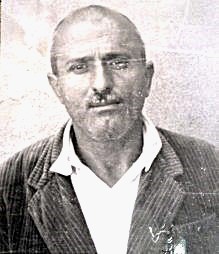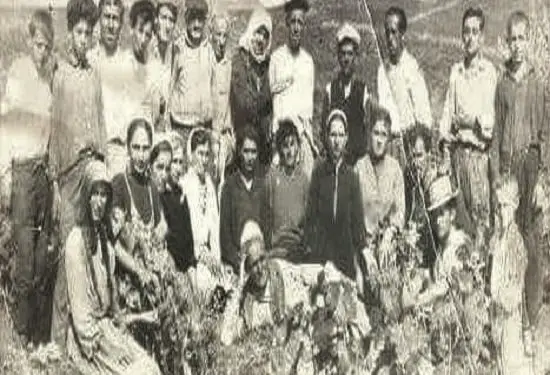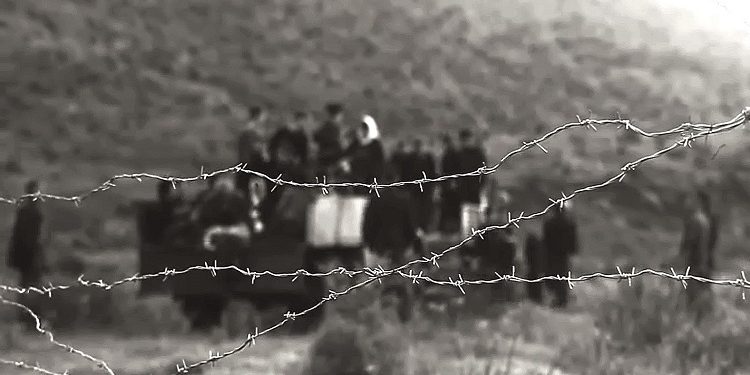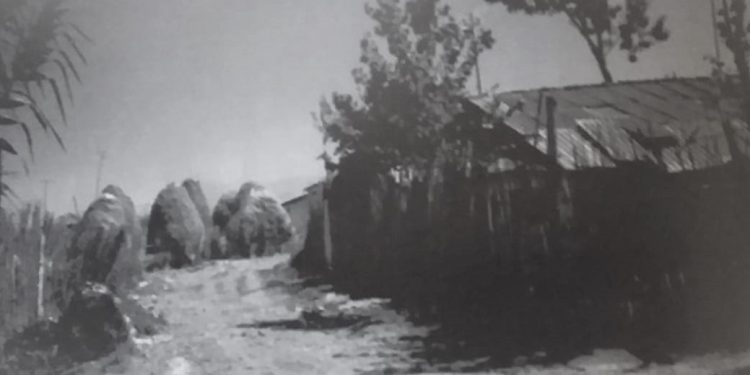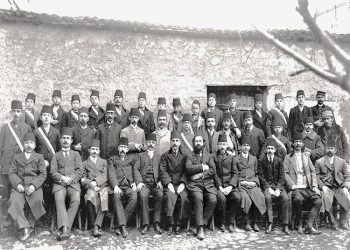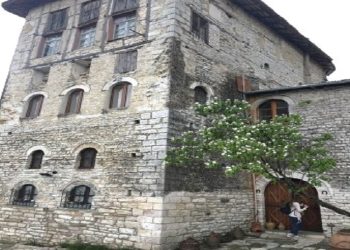By Kastriot Dervishi
Memorie.al / Musa Beqir Sina, born in Rrethkala, Dibër in 1932, was interned due to the escape of his two brothers in 1945, initially in Berat, Tepelenë, and finally in Kamëz. With his father killed by the communists, he was interned at the age of 13. In 1953, he was interned in Camp No. 3 (barbed wire) at the Brick Factory in Kamëz. The camp gathered all the able-bodied internees who could work, as the other camp, No. 4 in Tepelenë, not being a forced labor camp, had no work object.
Among other things, from the process of his conviction, we also receive additional information on the numbers of the barbed wire internment camps, about which there is some ambiguity in a document concerning their closure.
About two months before the barbed wire camps were closed, on 24.8.1953, Musa Sina attempted to escape. He was stopped by the police without being able to get far from the camp. Nevertheless, even though he was captured in the border area, the communist regime was determined to accuse him of treason against the homeland.
He was tried by the Military Court of Tirana. With Decision No. 202, dated 28.12.1953, the court declared him guilty based on Article 64 of the Penal Code and sentenced him to 10 years in prison and deprivation of civil rights. The court did not order the confiscation of property as it did not have an inventory of assets. In the court’s decision, where the class character is evident, it is stated, among other things: “The reasons that prompted the defendant to escape are because he comes from a family opposed to the National Liberation Movement.
His father was an officer of Zog and commander of Ballist gendarmes during the war, fighting against the partisans until the liberation of Albania. After the liberation, as a war criminal, he was killed by the Pursuit Forces during an encounter. His two brothers have fled to Yugoslavia, etc. For these reasons, the defendant has been interned in internment camps since 1945. As such, he has nothing to tie him to the popular democratic government, which is why he decided to escape to Yugoslavia, committing the crime of treason against the homeland.”
He was released from imprisonment, as a dangerous enemy, from Prison No. 321 in Burrel, on 19.8.1961. After his release, Musa Sina was interned. While residing in Savër, Lushnjë, he was arrested again on 27.10.1980. With Decision No. 25, dated 23.2.1981, the Lushnjë District Court declared him guilty, based on Article 55 of the Penal Code for agitation and propaganda, and sentenced him to 10 years of political imprisonment. He was released from prison on 16.8.1989, having served a total of 16 years, 9 months, and 15 days. / Memorie.al




